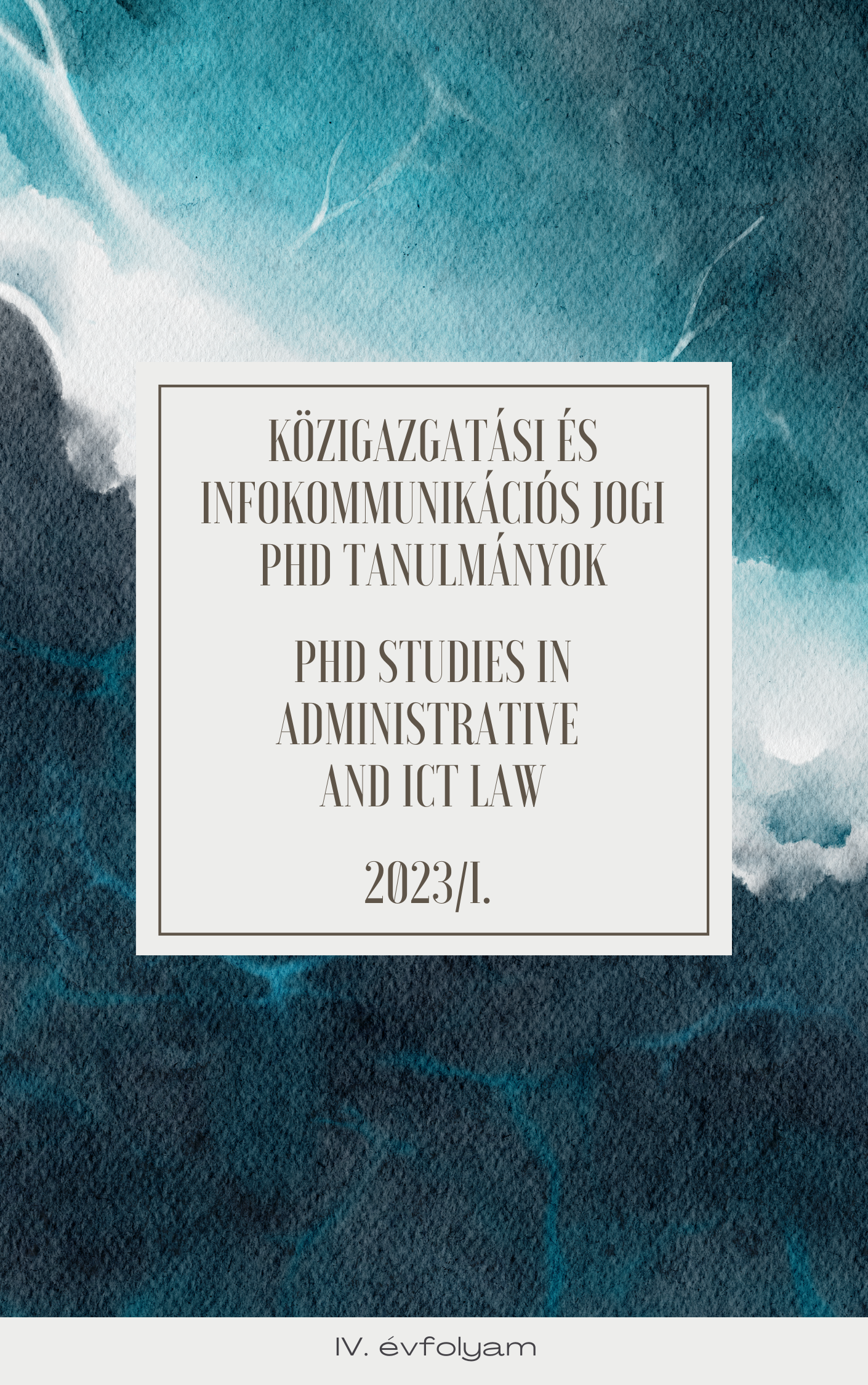Diplomatic Agents' Privileges and Immunities
DOI:
https://doi.org/10.47272/KIKPhD.2023.1.3Kulcsszavak:
International public law, Diplomatic relations, Diplomatic agentsAbsztrakt
This research examines the extent of diplomatic immunity, specifically in cases where a diplomat commits a criminal offense. This situation raises concerns as it contradicts the fundamental principles upon which diplomatic relations between countries are established, namely, the promotion of economic, social, and cultural ties. The occurrence of such crimes committed by a diplomatic agent undermines the very purpose of fostering these relations. This issue necessitates an investigation into the fundamental characteristics and attributes of diplomatic immunity. It has been observed in global conventions and customary international law that states generally do not relinquish the immunity of their diplomatic representatives, unless the diplomat engages in a non-task-related criminal act, thereby permitting prosecution within the host state's jurisdiction.
Letöltések
Hivatkozások
Denza, E.: Diplomatic Law: Commentary On The Vienna Convention On Diplomatic Relations, European Journal of International Law, 20(4), 1966, pp. 1286–1288. https://doi.org/10.1093/ejil/chp082
Dinstein, Y.: Diplomatic Immunity from Jurisdiction Ratione Materiae, The International and Comparative Law Quarterly, 15(1), 1966, pp. 76–89. https://doi.org/10.1093/iclqaj/15.1.76
Diplomacy Network, The Role Played by the Vienna Convention on Diplomatic Privileges and Immunities in Diplomatic Practice (2023). https://diplomacynetwork.com/the-role-played-by-the-vienna-convention-on-diplomatic-privileges-and-immunities-in-diplomatic-practice/ (2023.08.20.)
Goodman, D. H.: Reciprocation as a Means of Curtailing Diplomatic Immunity Abuse in the United States: The United States Needs to Play Hard Ball. Houston Journal of International Law, 11/1988, pp. 393–413, 404.
Gore-Booth, L.: Satow's Guide To Diplomatic Practice. Verfassung in Recht Und Übersee, 12(3), 1979. pp. 274–275. https://doi.org/10.5771/0506-7286-1979-3-274
Jones, R. R.: Termination of Diplomatic Immunity 1948, British Year Book Of International Law. London, Royal Institute Of International Affairs, 2016. pp. 262-279.
Koffler, W. F.: A Passing Glimpse at Diplomatic Immunity Kentucky Law Journal, 54(2), 1965.
Larschan, B: The Abisinito Affair: A Restrictive Theory of Diplomatic Immunity, Columbia Journal of Transnational Law, 26/1988, pp. 283-285.
Przetacznik, F.: The History of the Jurisdictional Immunity of the Diplomatic Agents in English Law. Anglo-American Law Review, 7(4), 1978, pp. 348-395. https://doi.org/10.1177/147377957800700402
Shaw, M. N.: International Law, Sixth Edition. Cambridge, Cambridge University Press,2017. pp 769.
Downloads
Megjelent
Verziók
- 2023-10-31 (2)
- 2023-10-31 (1)
Hogyan kell idézni
Folyóirat szám
Rovat
License
Copyright (c) 2023 Közigazgatási és Infokommunikációs Jogi PhD Tanulmányok

This work is licensed under a Creative Commons Attribution-NonCommercial-ShareAlike 4.0 International License.
A cikk felhasználási jogaira bármely harmadik fél számára az első közzétételt követően a Creative Commons Attribution-NonCommercial-ShareAlike 4.0 (CC-BY-NC-SA 4.0) licenc feltételek az irányadók.














